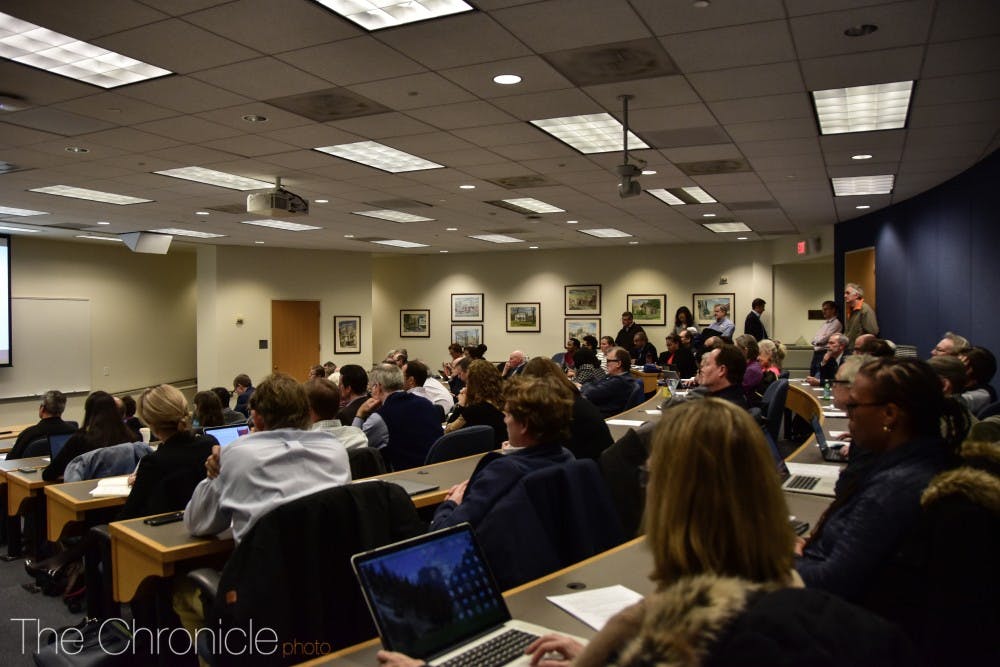The Provost's Ad-Hoc Committee on Re-Imagining Doctoral Education presented its findings and recommendations to Academic Council at its first meeting of the semester.
The committee was launched as part of Duke's 2017 strategic plan "Together Duke," with the goal to help Duke's doctoral students better prepare for their post-graduation careers.
Despite the heterogeneity across Duke's 54 doctoral programs, the committee found overarching strengths and shortcomings of the University's doctoral education. The final report of the committee calls for a revision of the mission statement for doctoral education at Duke.
The committee’s findings were informed by focus groups and surveys administered to Duke graduate students, faculty and alumni, who offered opinions on the good and bad of being a student who is pursuing a Duke doctorate degree.
First, the committee called for greater research collaboration among the doctoral students and increased emphasis on communication skills. It also aimed to improve awareness of opportunities among all students.
There should also be greater coordination among the Graduate School, other Duke schools and the provost’s office to ensure a well-rounded education, the committee advised.
The committee also recommended that the 54 Duke doctoral programs reassess the alignment of their curriculum with the goals of their program.
Recognizing lack of sufficient funding as a challenge, the committee has called for the provost to set aside $8 million for strategic investments in doctoral training.
Students reported feeling “vulnerable” and “isolated,” explained Susan Lozier, co-chair of the committee and Ronie-Richele Garcia-Johnson professor of earth and ocean sciences. The committee therefore emphasized the importance of fostering greater mental well-being, creating a better mechanism for heightened accountability among advisers and strengthening peer-advising networks.
The committee also suggested forming an implementation committee to guide the execution of these recommendations.
“[By implementing the recommendations,] Duke can attract even stronger cohorts of doctoral students, sharpen our capacity to foster world‐class research, and build richer intellectual networks as our doctoral recipients carve out leadership roles within and outside academic settings,” the report states.
In other business
The Council discussed electing a new chairman at the Thursday meeting as Chair Don Taylor, professor in the Sanford School of Public Policy, nears the end of his tenure.
The nominating committee unanimously nominated two candidates, Mark Anthony Neal—James B. Duke professor of African and African American studies—and Kerry Haynie—associate professor of political science.
Members of Academic Council will elect Neal or Haynie as chair before the next meeting in February, when the Council will proceed into general elections for its members. All faculty members will be considered for the general body elections.
The ideal candidate should show strong leadership skills, communication skills and empathy for all members of the Duke community, said Gráinne Fitzsimons, chair of the nominating committee and professor of business administration. She added that the future chair should have a history of active engagement in faculty and university affairs in addition to experience in other departments to better understand how the University functions as a whole.
“We firmly believe that faculty governance at Duke will be in good hands, being led by someone with a strong voice, a wise mind and a kind heart,” she said.
Additionally, the meeting ended with an executive session on the future of Central Campus, which is slated to stop housing undergraduates at the end of the Spring semester.
Get The Chronicle straight to your inbox
Signup for our weekly newsletter. Cancel at any time.

